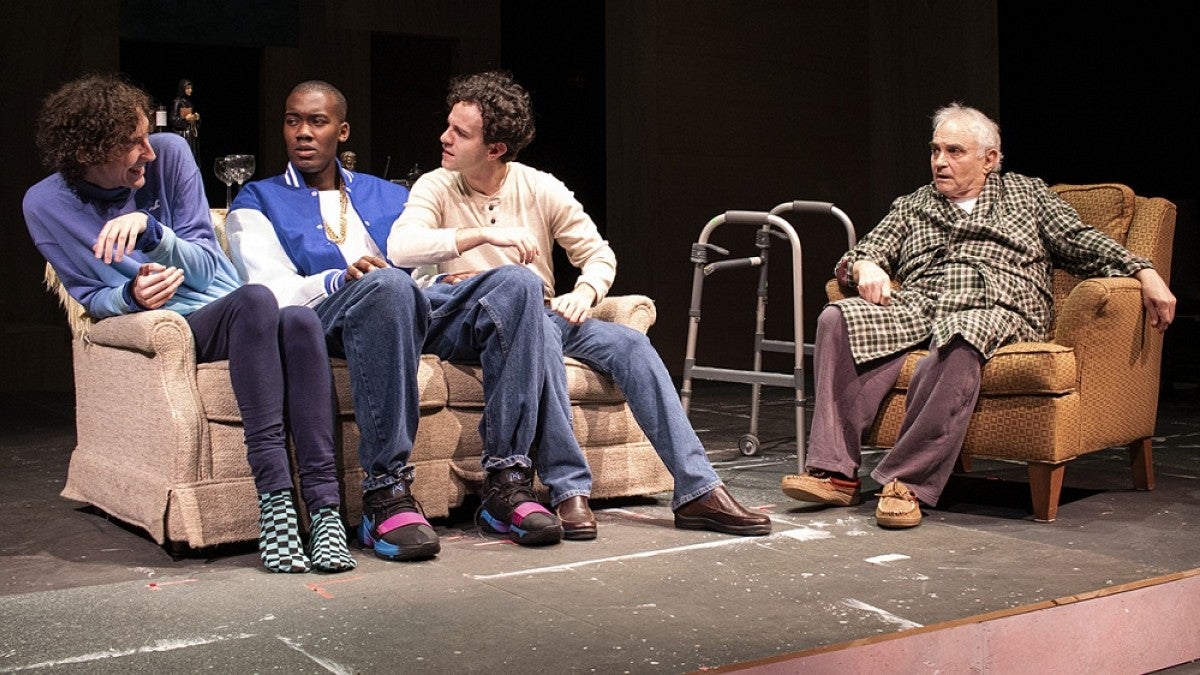University Theatre opens “Sons of the Prophet,” an award-winning comedy-drama by playwright Stephen Karam, on Jan. 24.
Life is a series of losses and start-overs, but for the Douaihys, a Lebanese-American family living in rural Pennsylvania, they seem to have more than their share of hardships.
Following the tragic death of his father, the result of a senseless prank perpetrated by a local high school jock, Joseph, the oldest and anchor of the family has a lot to cope with: a troubled teenage brother and a petulant and increasingly frail uncle, a demanding boss and a complicated relationship.
If that isn’t enough, between dealing with the maddening bureaucracy of a legal system that wants to postpone the trial of his father’s killer so he can play in a football championship game, Joseph must also navigate the complex health care system after learning the disturbing news that he is developing symptoms of multiple sclerosis.
A play touching on such weighty issues as pain and suffering, culture, race, disability and sexuality might sound depressing, but according to director and associate professor of theater arts Michael Najjar, dark comedy born from tragedy has universal appeal.
“This production will appeal to anyone who has been disappointed but has survived a setback and can look back at it with laughter,” he said. “It deals with the difficulties of young people and older people alike. It speaks to how we start with such promise and how life can sometimes derail our best plans.”
The show’s title refers to the Douaihy family’s distant relation to Lebanese-American author Kahlil Gibran, whose famous book on the human condition, “The Prophet,” serves as an ironic counterpoint to the challenges that Joseph encounters. It is also about the family’s Maronite Christian faith, a form of Catholicism of the Levant area of the Middle East.
“I hope that the public will appreciate the beautiful music and liturgy of this ancient tradition when they encounter it in the production,” Najjar said.
Najjar, who has studied and written about the author and artist, said that although Gibran did most of his greatest work in the U.S. his influence is often undervalued because of biases about authors from the East.
“We are still dealing with Orientalism in the 21st century,” Naijar said. “My hope is that plays like this, and scholarship about the early Arab-American writers, will eventually change our views about these writers in the future.”
Opening Jan. 24 at the UO’s Hope Theatre in the Miller Theatre Complex, “Sons of the Prophet” will also be performed Jan. 25 and 31, and Feb. 1, 7 and 8 at 7:30 p.m. and Feb. 2 at 2 p.m. Admission is free for UO students with ID, $10 for adults and $8 for seniors and non-UO students.
—By Sharleen Nelson, University Communications


